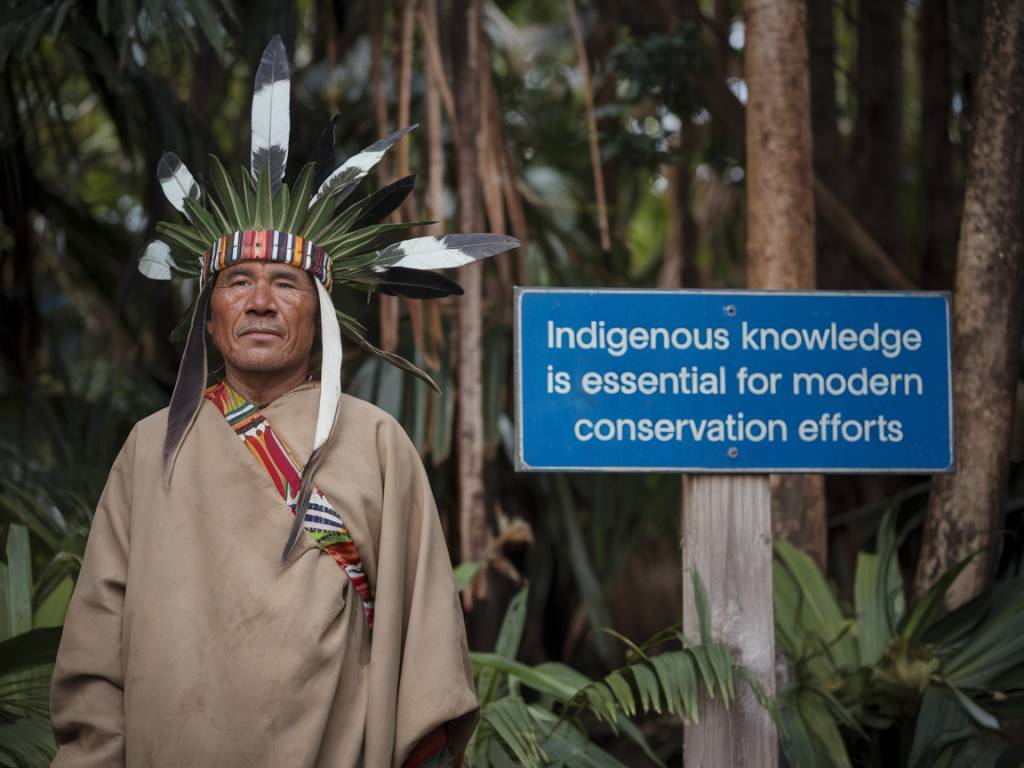In a rapidly changing world, where the need for sustainable conservation efforts has never been more pressing, a curious ally stands ready with ancient wisdom and practices – indigenous knowledge. This reservoir of ecological understanding, passed down through generations, holds profound insights into nurturing and preserving ecosystems. But what role does this knowledge play in contemporary conservation efforts? Let’s explore.
The Wisdom of Ancestry: A Foundation for Sustainability
Indigenous knowledge serves as a testament to humanity’s historical interaction with the environment. Communities worldwide have managed their resources sustainably long before modern science put a name to the practice. Their deep understanding of local ecosystems often provides solutions that are not only practical but also environmentally harmonious.
Take the example of the Amazon rainforest, often referred to as the « lungs of the Earth. » Indigenous tribes who call this vast ecosystem home have developed agroforestry techniques that maintain biodiversity while supporting their nutritional needs. These centuries-old practices enhance soil fertility, promote plant diversity, and protect against pests naturally.
Learning from Nature: Indigenous Practices in Action
In the quest to address climate change, looking towards time-tested methods can be incredibly informative. Indigenous fire management practices in Australia, for instance, have gained attention for their effectiveness. Traditional fire-stick farming involves controlled, low-intensity burns that prevent larger, more destructive wildfires, all while promoting plant rejuvenation and the growth of fire-tolerant species.
Why not learn from those who have lived in tandem with their ecosystems for millennia? The knowledge embedded within these communities often fills gaps left by modern science – gaps that, if ignored, could hinder our conservation efforts.
Bridging Worlds: Collaborative Conservation Efforts
While indigenous knowledge is invaluable, the integration of such insight into conventional frameworks requires cooperation. Consider the success stories where scientists and indigenous communities have collaborated to manage lands effectively. In Canada, the establishment of Indigenous Protected and Conserved Areas (IPCAs) reflects a significant shift towards inclusive conservation. Here, the shared governance model empowers indigenous groups, acknowledges their traditional territories, and results in better conservation outcomes.
Are these collaborative efforts the key to future ecological success? The answer might lie in our ability to listen and respect the voices of those who have long understood the symbiotic relationship with nature.
Challenges and Opportunities in Preserving Indigenous Knowledge
Despite its potential, the inclusion of indigenous knowledge in modern conservation faces numerous challenges. Intellectual property rights, loss of language, and cultural assimilation threaten the very foundations of this knowledge. Moreover, the mere tokenistic inclusion of indigenous practices, without respecting the cultural significance, risks superficial engagement.
However, where challenges exist, so do opportunities. Documenting and preserving languages, recognizing land rights, and engaging in genuine partnerships between indigenous groups and scientists can pave the way for more effective conservation strategies. Isn’t it time we focused on these positive pathways?
A Call to Action: What We Can Learn
Indigenous knowledge is not a relic of the past; it is a critical component of our sustainable future. As ecological enthusiasts, conservationists, and global citizens, we owe it to ourselves and future generations to embrace this knowledge as part of a holistic approach to conservation.
By valuing the sustainable practices of indigenous communities, we not only preserve biodiversity but also foster a deeper understanding and respect for the planet. Perhaps, by reflecting on this wisdom, we can learn to nurture our relationship with nature once more.
Incorporating indigenous knowledge into modern conservation is not merely a gesture of inclusion but an essential strategy in confronting ecological and climate challenges. Let this be an opportunity to create a legacy of which we can all be proud – one where ancient wisdom walks hand in hand with modern innovation.

